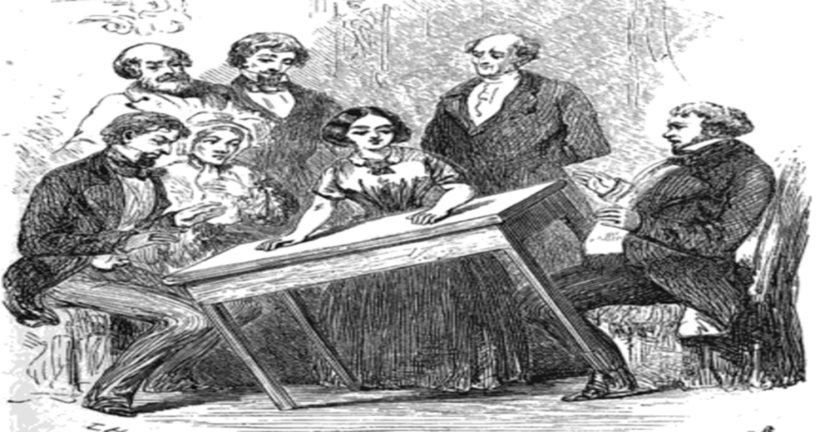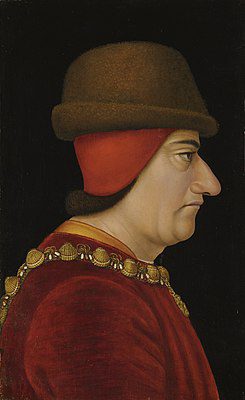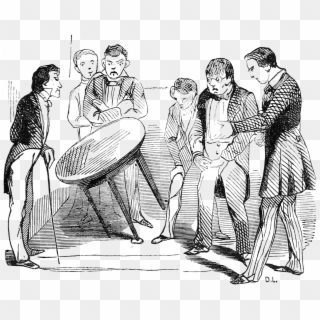The Samaritan Suicide
In this article, Kardec evokes a Spirit who had committed bodily suicide just 6 days before. As can be seen in the original text, this man was not recognized by anyone, having been buried as a pauper. It is possible to raise several considerations about this article.
“The phone only rings from there to here”
The first of these considerations, we would say, is regarding the evocation itself: at a time when the motto “the phone only rings from there to here” reigns, that has a background of reason, but which is thoughtlessly repeated by so many, we are faced with the doctrinal basis of Spiritism, built largely under evocations - i.e, the phone also rings from here to there. Only that, like a telephone, who will answer and if will answer is the problem of the question, always addressed by Kardec.
The Suffering of the Suicide
It is important to understand that the Spirit of the suicide will not suffer divine punishment for a sin committed – not in this way. Any Spirit will always have forgiveness and new chances, as it all starts from ignorance regarding evolving Spirits.
There are infinite variations between each case, with the result that there are infinite effects related to each case, because, essentially, such effects will be linked to the general mentality of the Spirit who commits suicide. While some will throw themselves into a real hell, because they believe they have committed sin, others may even be relieved, In a first moment – because later, when you really understand everything, you will most likely regret the wasted life.
Anyway, as São Luis attests, we understand that the first effect for every suicidal person – or, at least, for most of them – will be a great difficulty to disconnect from the body, given the violence of the act, their mental state and the fact that the body is still saturated with vitality. This, however, is only what we can say at the moment, based on what we understand from the article, because, really, it is a subject that requires further development and investigation.
It is also important to emphasize that the Spirit does not suffer none kind of physical pain. It is always your morality, your conscience, that externalizes and places in external factors the pain that is, in fact, within yourself. The suicidal person (like other spirits), therefore, can claim to suffer from cold or thirst, when, in fact, he is suffering morally, and not physically. In fact, we do this ourselves, with the difference that, through psychosomatic processes, we can develop actual damage or illness in the physical body.
That is why, when we come in contact with any Spirit in suffering, we can and should have a natural and healthy conversation with him, clarifying these points. It helps enormously for them to understand that suffering is moral, internal, not external and imposed.
the valley of the suicides
To put it bluntly: there is no “the” valley of suicides, just as there is no “the” hell. It is important that the Spiritist learns to remove this type of concept from his imagination and, above all, to spread them to others, because we know that, as a not very enlightened Spirit, we seek environments and other Spirits that are in accordance with our mentality that, moreover, shape these environments of suffering together. Therefore, when a suffering Spirit says that he is “in” hell, he acts like an incarnate person who, in a very difficult situation for him, expresses himself in the same way, with the difference that the Spirit shapes, alone or together, his own hell. .
Once again, it is very important to seek to clarify such Spirits, when in contact with him.
Above all, it is important to remember that there is no such fateful connection between a suicide and the exile of the Spirit in a “valley”, as a penalty.
The effects of suicide on the next incarnation
There is something much wrong in the spiritist environment in general, currently, and which is not doctrinal - in fact, it is something anti-doctrinal, born from the lack of study of the Doctrine: it is to make the depressing claims that such an individual was born under such tests or deformations because in the previous life he did this or that.
In the particular case, about suicide, there is a terrible statement made out there: that the individual who has physical problems today is so because he would be “rescuing” a suicide committed in the previous life. Brethren, this statement is criminal, why:
- keep away people who, suffering in their skin or having a loved one in these situations, feel (rightly) outraged by this type of statement.
- it's fallacious, because it is not based on reality: we do know that for every effect there is a cause, but it is not for us to probe the evidence of each, both because of the imposition of charity, which we must practice, and because a Spirit can choose a deformed body not only as a test, in order to try to get rid of an imperfection, but also as a mission in front of other Spirits or also as an opportunity to learn other virtues that you still feel the need to exercise. Anyway, it's ever a conscious choice of the Spirit, not the effect of a divine mechanics of sin and punishment. We note, moreover, that in all the spiritual communications studied so far, they always assert, even for the case of the monomaniacal madman, that the proof is the result of a choice prior and personal.
Suicide is not fought by fear
Finally, we remind you that suicide will never be fought by imposing the fear of suffering, but, rather, through the clarification. Let us introduce such individuals to the essence of Spiritism. Let us try to lead them to the following reasoning:
Pains and joys are fleeting, related to incarnate life. Happiness, which is what we really seek, will only be achieved after we leave our imperfections behind – since, for example, someone who is too worried, or too anxious, or too angry, or too jealous, or too proud, or too sensual, etc., cannot be really happy. To do so, on the spiritual plane, when we are aware of our imperfections, we plan lives with opportunities and difficulties, sometimes quite heavy, which, in our judgment, can help us overcome such imperfections. Therefore, giving up a life, with the extinction of the corporeal life itself, will not result in any progress, because, having not taken advantage of the difficult test for learning, we will not have perfected ourselves and, therefore, we will need - by our own will and verification – restarting a new life, carrying an even greater burden, due to the feeling of guilt caused by giving up and, who knows, by the disastrous effects that such an act can cause in the incarnate spirits that surround us.
Nobody is saying it's easy. Everyone knows where the callus presses and when you squeeze it, it hurts a lot. But we need to learn to separate physical pains from moral pains, placing ourselves, before ourselves and before the Creator, naked of any mask of selfishness or vanity and of all the imperfections that arise from these. We need to seek, in each hard test, as well as in the abundant opportunities that are presented to us, the deep needs we have for learning and, not forgetting that we are never alone, trust in the good Spirits, who do not abandon us, to go through such difficult moments.
Here, by the way, a final thought arises, supported by Spiritism: God does not give us a greater burden than we can carry. Most of the time, life presents us with opportunities that would allow us to learn in a much “lighter” way, but we, almost always, driven by pride, try to wear a mask, confuse us from ourselves and, thus, we choose leave aside the straight path, in order to embark on the winding and tortuous paths of passions (not speaking here in love, but in the deep feeling provoked by sensations). This is how, for example, many choose leave aside the study of Spiritism, which can leverage our evolution so much, to live life in laziness.
Therefore, let us take advantage of the opportunities that life offers us for our learning and evolution. Sometimes they are prickly, chosen by ourselves; at others, they are fields of soft and smooth grass, full of teachings given by love. It is up to us to recognize them.
NOTE: This evocation is in the book Heaven and Hell by Allan Kardec, first report of Chapter V – Suicides, of Part Two. It is worth reading the entire chapter V with several reports of evocations of suicides with many considerations by the author.




